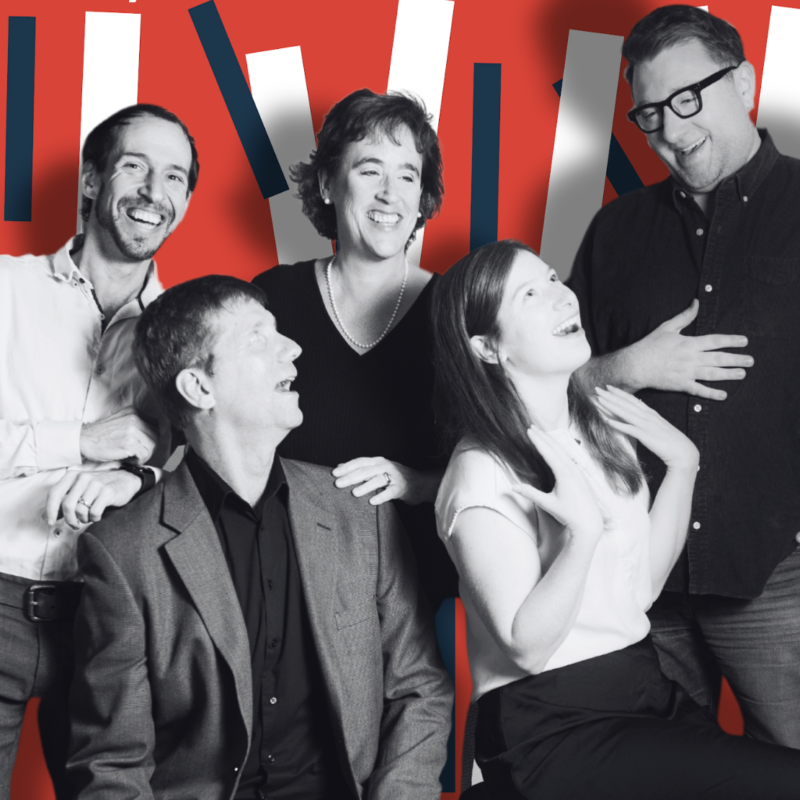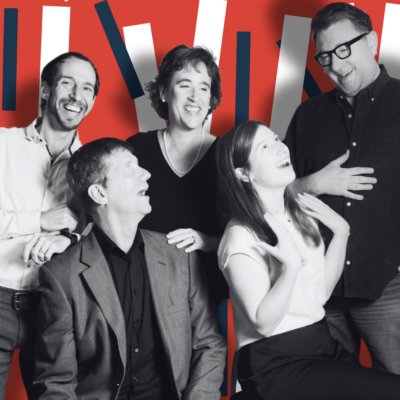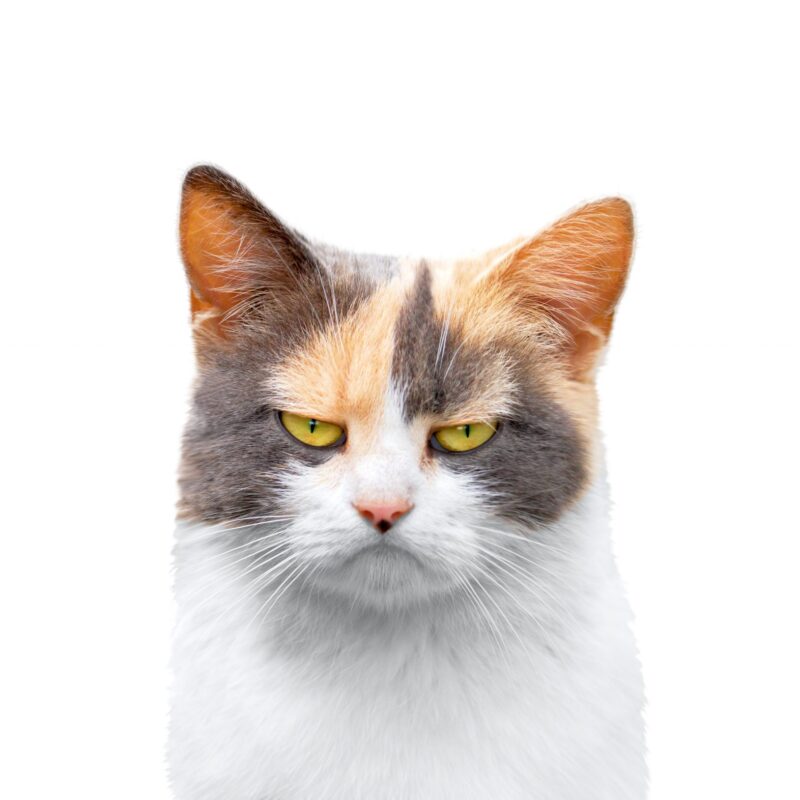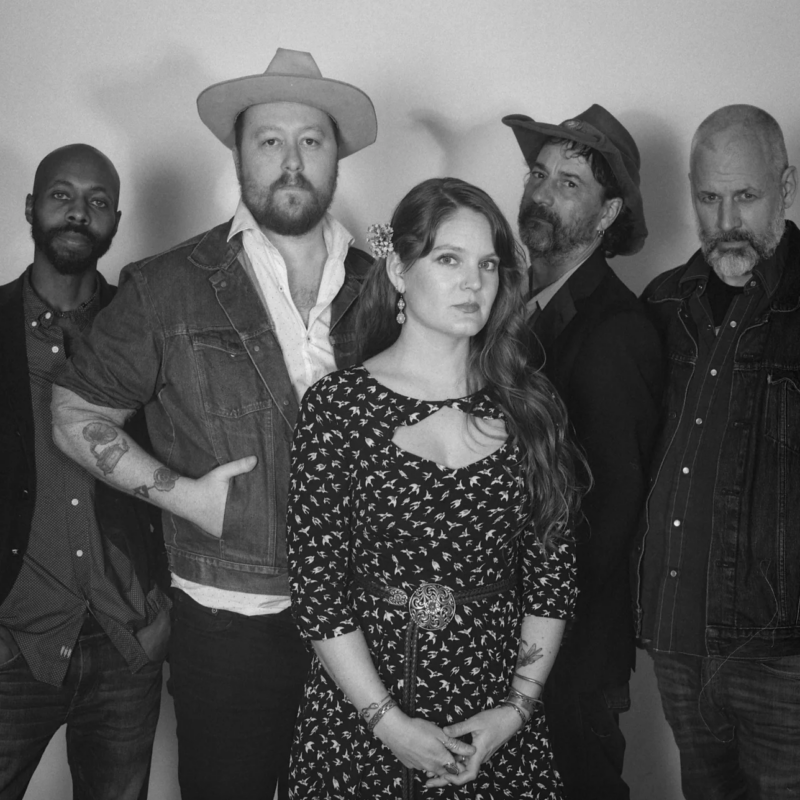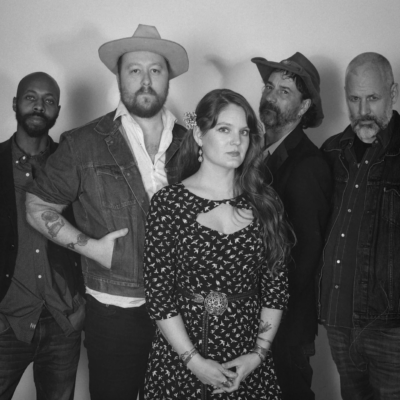Who, exactly, is Harvey?
Although it’s a central question of this play of the same name, the latest from 2018’s Heritage Theater Festival, perhaps a better one to ask is, Who is Elwood P. Dowd?
According to his sister Veta, Elwood is her “biggest heartache.” He is also jobless, a notorious drunk and best friends with the title character, an enormous, anthropomorphic rabbit only visible to Elwood.
With this is mind, Veta’s attempts to put Elwood in a sanitarium—the driving conflict of the comedy—start to make more sense. Her decision to do so starts a hilarious chain of misunderstandings during which Veta herself is mistaken as crazy and the sanitarium staff starts to question whether this rabbit is as imaginary as he seems.
Through all the confusion, Elwood (Bryan Close) waltzes in and out of the action and consistently steals the show. Viewers whose last experience with the story is the 1950 movie version, in which Jimmy Stewart plays Elwood, will enjoy the unique direction Close takes with the character.
Just as engaging is Julia Brothers’ interpretation of Veta. As Elwood’s high-strung, status-obsessed sister, the multilayered character goes from simpering to ferocious to surprisingly emotional within seconds. Her interactions with Close are some of the play’s most entertaining and provide the core of the story which, despite its distracting side-romances and fantastical elements, raises questions of family and preserving one’s character.
While the siblings’ tension is Harvey’s strongest feature, lesser roles shine too. Payton Moledor is excellent as Myrtle Mae, Veta’s daughter who just wants a normal family. Kevin Minor and Dan Stern work well together as Drs. Sanderson and Chumley, the bumbling heads of the sanitarium whose efforts to commit Elwood become increasingly less effective as they stop worrying about his sanity and begin doubting their own.
If the story, with its themes of mental illness and excessive drinking, seems intense to be treated as a light comedy, it’s important to remember that the entire play centers around a talking rabbit that may or may not exist. The discussion of Elwood’s mental health never goes further than discussing Harvey, and whenever Elwood visits a bar, he’s accompanied by Harvey himself—there’s just something about the image of a man getting trashed alongside a giant bunny that turns a problematic concept into something laughable. It also helps that Close portrays Elwood’s drunkenness adorably, having the character choose his words with care and take acrobatic bows whenever a lady steps onstage.
The other element to consider is the play’s historical context—it was originally written in the 1940s, a time when Elwood’s character, with all its troubling quirks, was maybe easier to accept. Harvey keeps this fact in the back of viewers’ minds with set and costume design, employing Victorian furniture (over top of a beautiful backdrop of sketchy lines—a whimsical style that’s in keeping with the play) and antiquated outfits to make it clear that this story occurs several decades ago.
Harvey doesn’t ask any big questions, but this may be its ultimate strength. In an age where stories often buckle under their own weighty message, this play exists as a reminder that tackling social and political themes, while important, is not the only way to tell an entertaining story.
Take Elwood’s life philosophy as he phrases it to Dr. Chumley. After explaining that his mother told him he could either be a smart person or a pleasant one, Elwood says, “For years I was smart. I recommend pleasant. You may quote me.” Harvey is one of the most pleasant, must-see productions of the summer.
